Musical Inspiration and Delight
An interview with Genevieve Helsby on her recent release of My First Piano Book.
With My First Piano Book, Genevieve Helsby continues her joyful mission to connect children with classical music. She combines a lifelong devotion to music with her book career as an author and editor. Like her earlier hits Those Amazing Musical Instruments and My First Orchestra Book, My First Piano Book combines illustration, music, and words to reach children through eyes, ears, and touch.
An interview with Genevieve Helsby on her recent release of My First Piano Book.
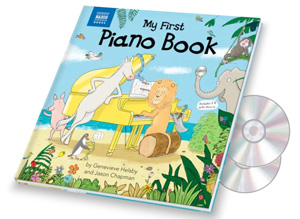 With My First Piano Book, Genevieve Helsby continues her joyful mission to connect children with classical music. She combines a lifelong devotion to music with her book career as an author and editor. Like her earlier hits Those Amazing Musical Instruments*, My First Orchestra Book, and My First Classical Music Book, My First Piano Book combines illustration, music, and words to reach children through eyes, ears, and touch.
With My First Piano Book, Genevieve Helsby continues her joyful mission to connect children with classical music. She combines a lifelong devotion to music with her book career as an author and editor. Like her earlier hits Those Amazing Musical Instruments*, My First Orchestra Book, and My First Classical Music Book, My First Piano Book combines illustration, music, and words to reach children through eyes, ears, and touch.
Helsby’s latest collaboration with illustrator Jason Chapman is playful with a purpose. Learning a musical instrument can greatly influence healthy child development. In our age of screens, Genevieve Helsby deploys her many talents to pass down one of humanity’s most sacred traditions.
How were you first introduced to the piano? I was lucky. It was through my mother, who still teaches the piano. When I was very little I wasn’t interested, so she left it alone – though I would have heard her playing and teaching. When I was seven, I changed my mind. She taught me right through my teenage years, which I know took a great deal of patience and tolerance!
Do you teach piano to children? I have taught children of various ages, but currently focus on projects like the My First series of books with Naxos. I hope to spread the word far and wide that music is one of the most wonderful things to discover.
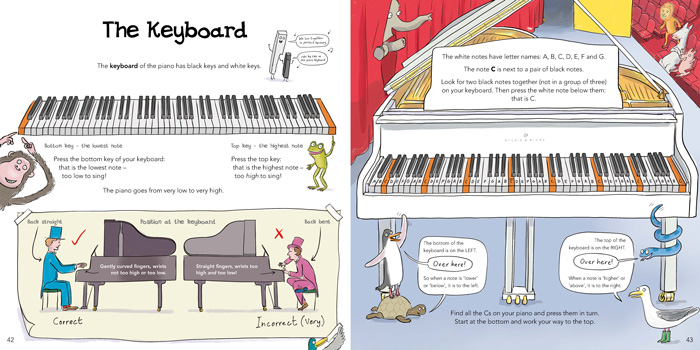
How do you feel when you introduce small children to classical instruments? Absolutely delighted. When I see how a small child responds to a classical instrument with wide-eyed wonder, I find it totally inspiring. Children can also be taken with the smell and touch of an instrument as well as the sound and sight of it. Music is a total sensory experience.
In what ways does learning to play music benefit a developing child? There are so many. To learn an instrument is to acquire a physical skill – a cognitive process – but it also means learning to listen. In a noisy world, the art of listening is so valuable. To read music, a child’s counting skills and sense of rhythm are important. Learning these things is like fine-tuning the mind. Creating music with others gives a unique sense of involvement and helps their confidence. Ultimately, of course, it is enjoyment and satisfaction. Playing an instrument is one of the most rewarding things a child can learn to do.
How is playing a real piano different from making music on a computer?
It is immediate and tangible. We can do so much on a computer, but a piano is just a piano. There is a beauty about that. It is like comparing riding a horse on a computer game with riding a real one!
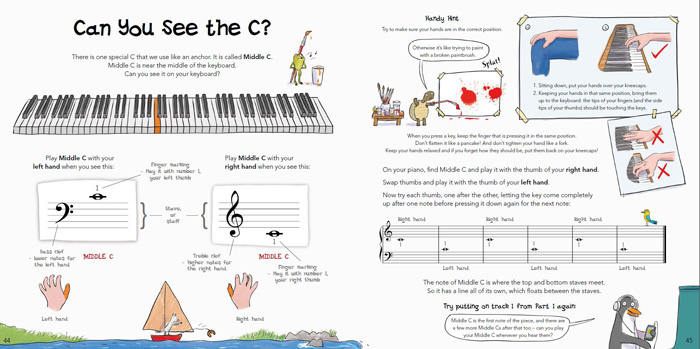
Do you think learning to play music helps a child with focus and discipline? Absolutely. There are so many gadgets, tablets, and TVs today. It’s natural for a child to flit from one thing to another. Learning the piano requires both discipline and focus which leads to the satisfaction of acquiring a special skill. Sadly, many children never have much experience of classical music. There is so much evidence of its benefits – especially of learning an instrument – yet it is increasingly squeezed out of school timetables. It is a great shame – not only culturally – but because learning to play music will indeed feed a child’s overall development. So it’s more important than ever to provide materials for children to learn and enjoy it outside school!
If I’m not a musician how can I inspire my child to learn to play music? I wrote this book for precisely this reason. The book aims first and foremost to inspire both child and parent! The idea is to introduce the concept of the instrument and then provide tools for having a go. So you can open the door for yourself as well as your child – and perhaps learn together! Sometimes those who do not see themselves as musicians can be more passionate about new experiences. You can pass this attitude on to your child. As soon as a curiosity is sparked, it is like a touch-paper. They become interested in something that can feed into so many other aspects of their lives.
Do children have to be taught how to listen to classical music? Every child is different. Some children will listen naturally. Many will need guidance to listen so that their ears are open to new sounds. It can help to point out different things to listen out for. But sometimes it’s simply a case of timing or of closing eyes and using imagination. Children can often be attracted to sounds that adults may perceive to be unapproachable – they may find ‘difficult’ atonal music to be exciting, for example! It’s wonderful to harness this freshness, before external factors can influence how the music is perceived.
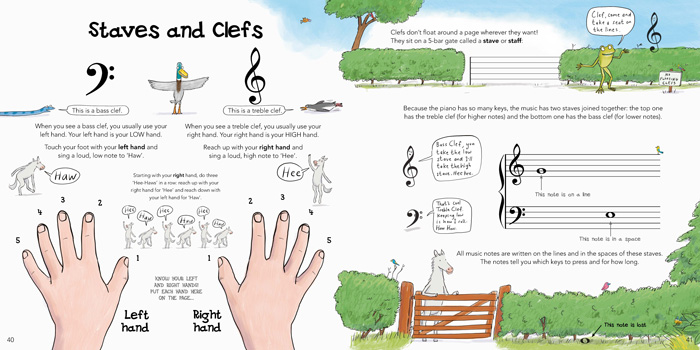
Do you think kids appreciate the difference between live music and a recording? Yes, not least because they can see it! We are, increasingly, a visually driven society. Of course, if a concert is filmed well it can be great for children to experience it that way. But being in the presence of people actually creating music is a different experience. I think children hold it in their memory.
*Meet the Instruments of the Orchestra! is published in the U.S. by Sourcebooks as Those Amazing Musical Instruments (ISBN: 9781402208256).
My First Classical Music Book (ISBN: 9781843791188), My First Orchestra Book (ISBN: 978-1843797708), and My First Piano Book (ISBN: 9781781980293) are available from Naxos of America.
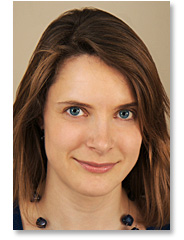
RELATED
The job outlook in 2030: Librarians will be in demand
The job outlook in 2030: Librarians will be in demand
ALREADY A SUBSCRIBER? LOG IN
We are currently offering this content for free. Sign up now to activate your personal profile, where you can save articles for future viewing







Add Comment :-
Be the first reader to comment.
Comment Policy:
Comment should not be empty !!!